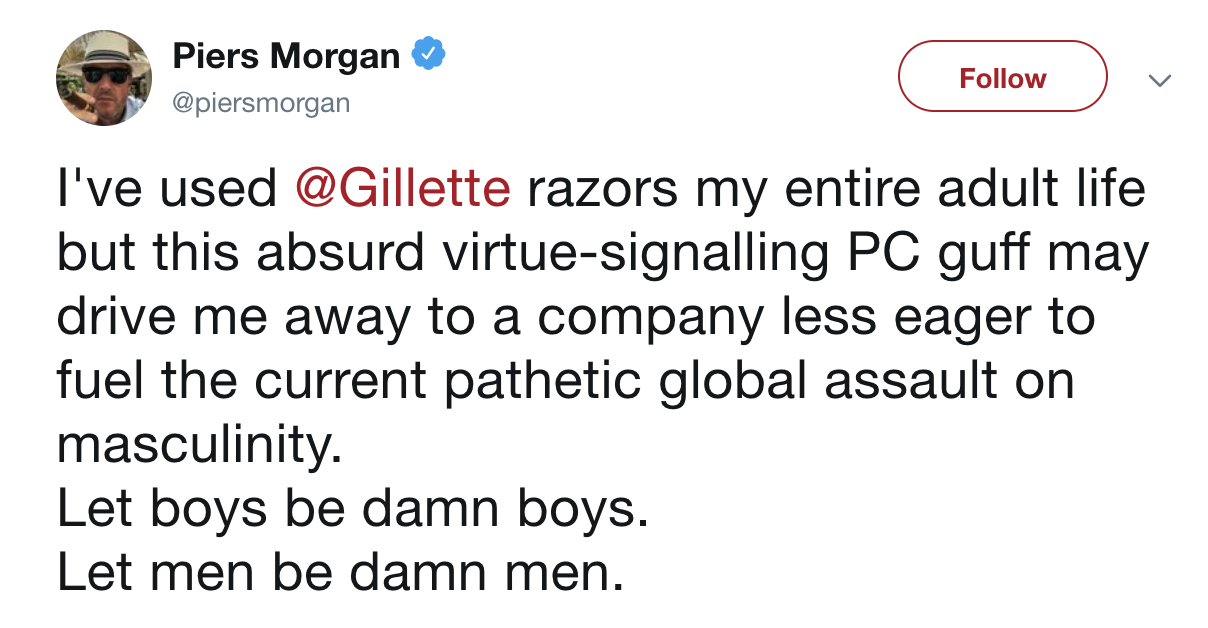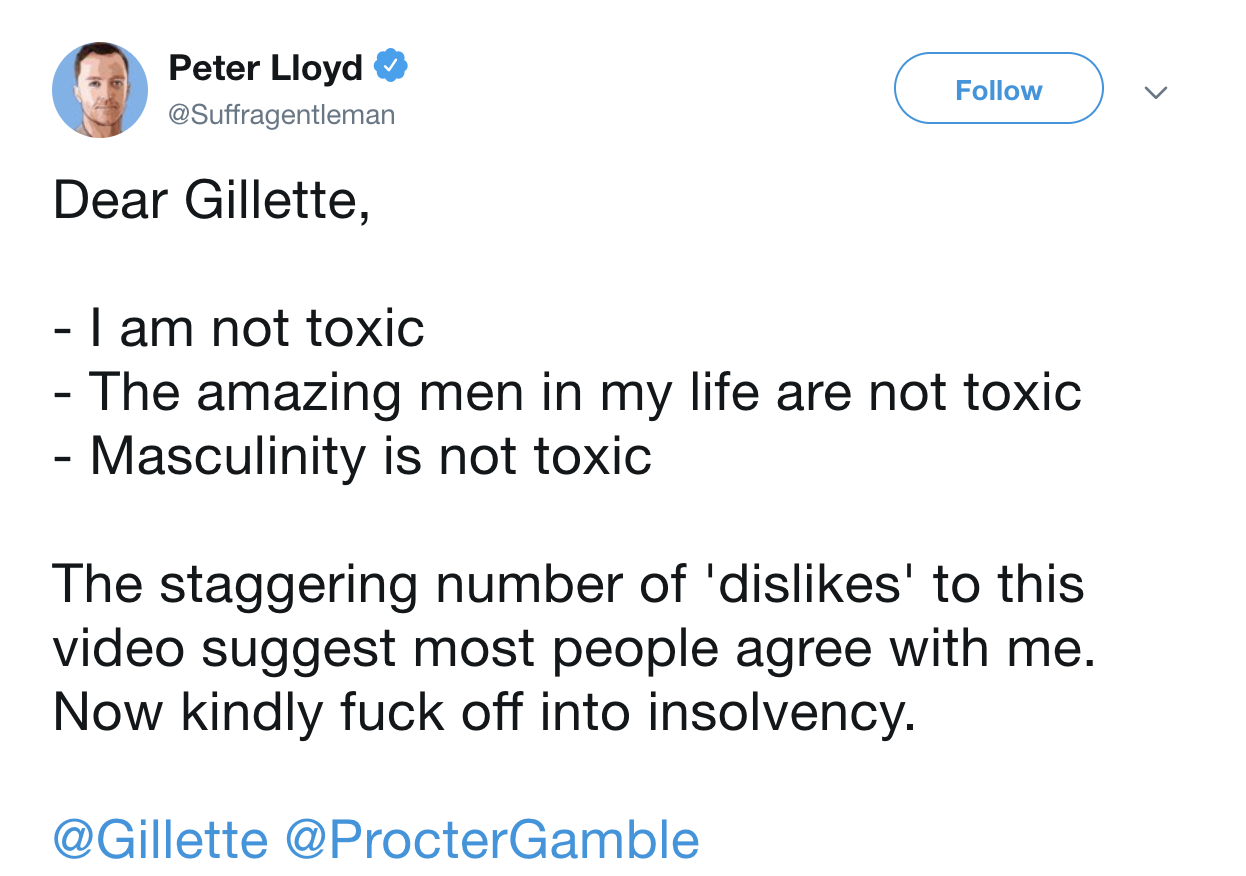Moments after Gillette unveiled its new ad campaign, “We Believe,” challenging toxic forms of masculinity, including the brand’s own past participation in perpetuating harmful depictions of what it means to be a man, the Internet went ablaze with fiery reactions. The ad begins with a collage of men behaving abominably (catcalling, harassing, bullying) and ends with positive images of men eschewing a “boys will be boys” ethos — breaking up fights between boys, checking other men’s bad behavior, and nurturing their daughters’ strengths.
Some, like news commentator Piers Morgan, took it as an assault on men. Morgan ranted on Twitter: “I’ve used @Gillette razors my entire adult life, but this absurd virtue-signalling PC guff may drive me away to a company less eager to fuel the current pathetic global assault on masculinity. Let boys be damn boys. Let men be damn men.”

Others, like multiple Fox News anchors, jumped in to say they felt the ad assumes the worst of men and that “there’s nothing wrong with masculinity.” The author of Stand By Your Manhood, Peter Lloyd, took his outrage to Twitter as well: “I am not toxic. The amazing men in my life are not toxic. Masculinity is not toxic.”

But a video posted to YouTube on January 22nd illustrates a more thoughtful reaction by the very group Gillette sought to target: young men. In the video, a crew of middle and high school boys from the Men of Strength (MOST) club, a youth development program that promotes healthier expressions of masculinity, participated in a measured exchange about the implications of the campaign. One boy in the video said: “I think it actually was a very positive thing in how it allowed for a discussion to be created in the media, and I think that it’s too bad that there was such bad reception toward it because it was great and it had a great message.” Another teen added: “It serves as a good call to action.”
The angry reactions to the ad have come from adults with political agendas, says Neil Irvin, the creator of MOST and executive director of non-profit Men Can Stop Rape (MCSR). “Adults, we’re the worst. The young people get it,” he says, adding that the feedback he heard from young men and their female peers was “overwhelmingly positive.”
Irvin, the father of three children, is perplexed by critiques pegging the campaign as anti-male. “I’m curious when there’s an adult who believes that saying men should be strong, assertive and kind is somehow anti-male,” he says, praising the benefits of the campaign’s representations of masculinity for young people like the members of MOST. “Media absolutely shapes young people’s ideas,” he says. “When you can see images that reflect the values that you believe in, you can see examples of the type of people you would like to be.”
Sarah Sobieraj, Ph.D., an associate professor in the School of Arts and Sciences at Tufts University in Boston and co-author of The Outrage Industry: Political Opinion Media and the New Incivility, tells Thrive that the reactions to the campaign are symbolic of the American political landscape today — and indicative of how quick people are to jump on the bandwagon of outrage culture. “We are very, very quick to decide that something or someone is either on our team or the opposing team, and as a result it is time to applaud or condemn, both publicly and privately,” Sobieraj says. Our hyper partisanship and amped up responses stem, she says, “from a significant portion of the country feeling as though their way of life is under siege. They’re reacting in a defensive mode that’s driven both by fear and anger, as opposed to a motivation to hear, understand, and empathize.”
The fallout from that self-righteous knee-jerk tendency is that it shuts down discourse and robs us of the wonderful openness that the members of MOST so admirably demonstrated in their video. “That they’re actually having a conversation about the commercial,” says Sobieraj, “is more than I can say for much of the rest of the country,” she says.
Follow us here and subscribe here for all the latest news on how you can keep Thriving.
Stay up to date or catch-up on all our podcasts with Arianna Huffington here.


